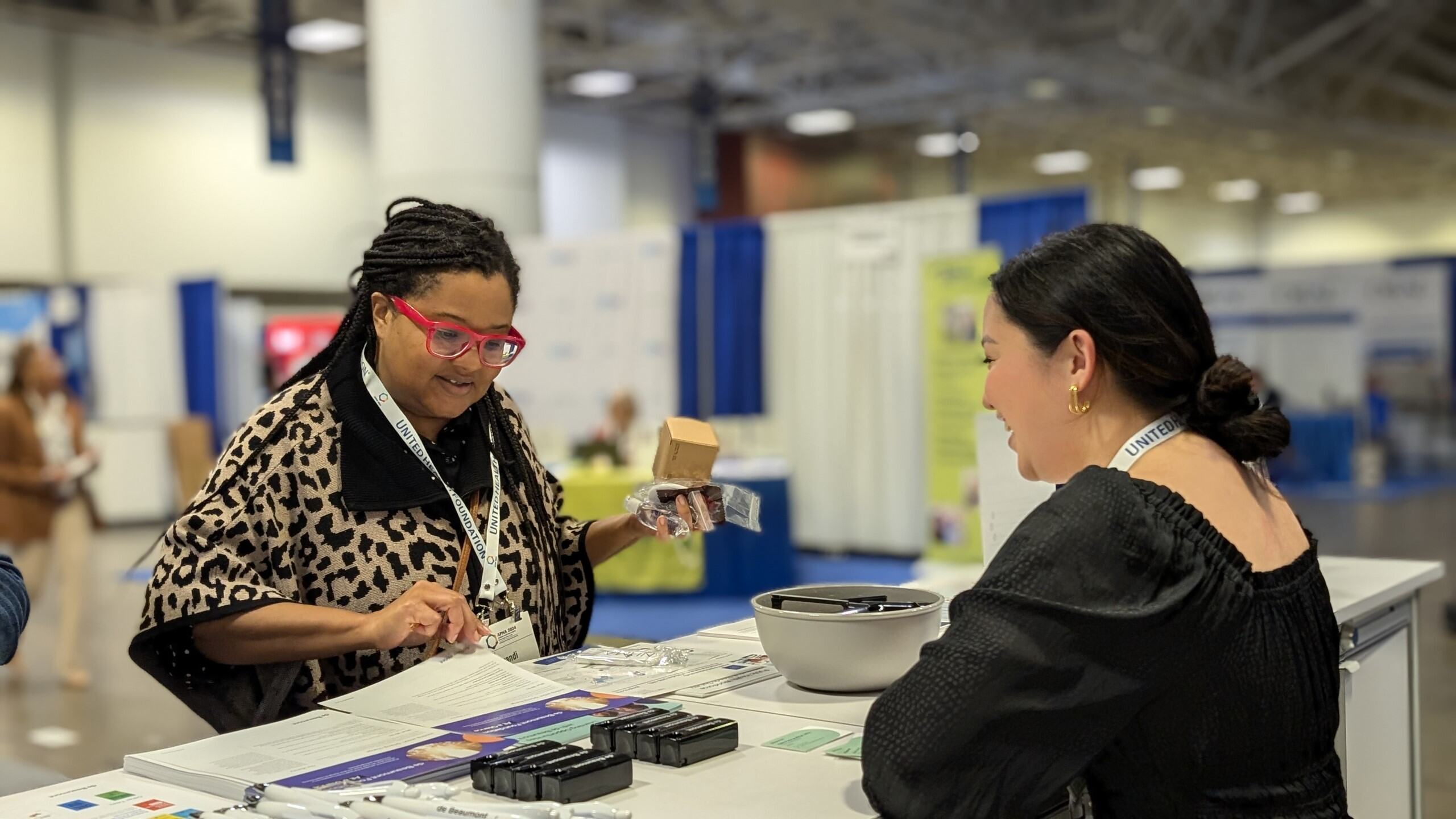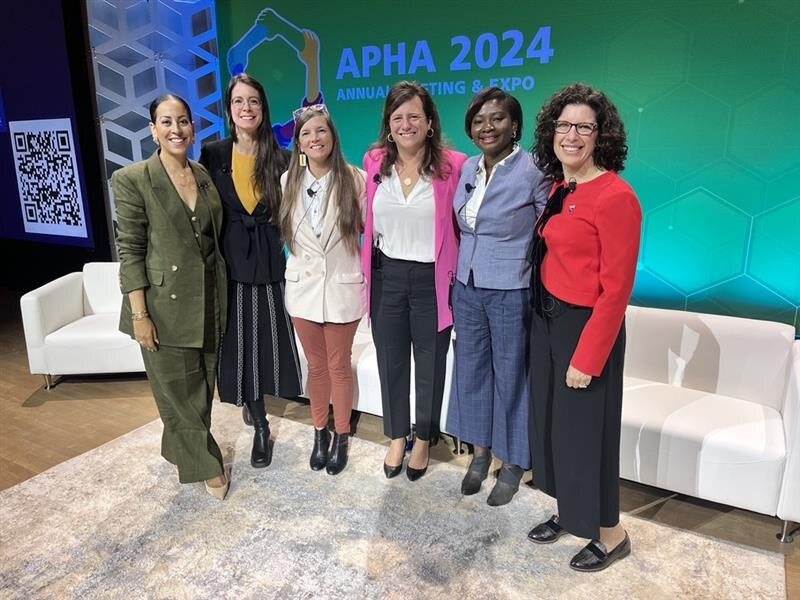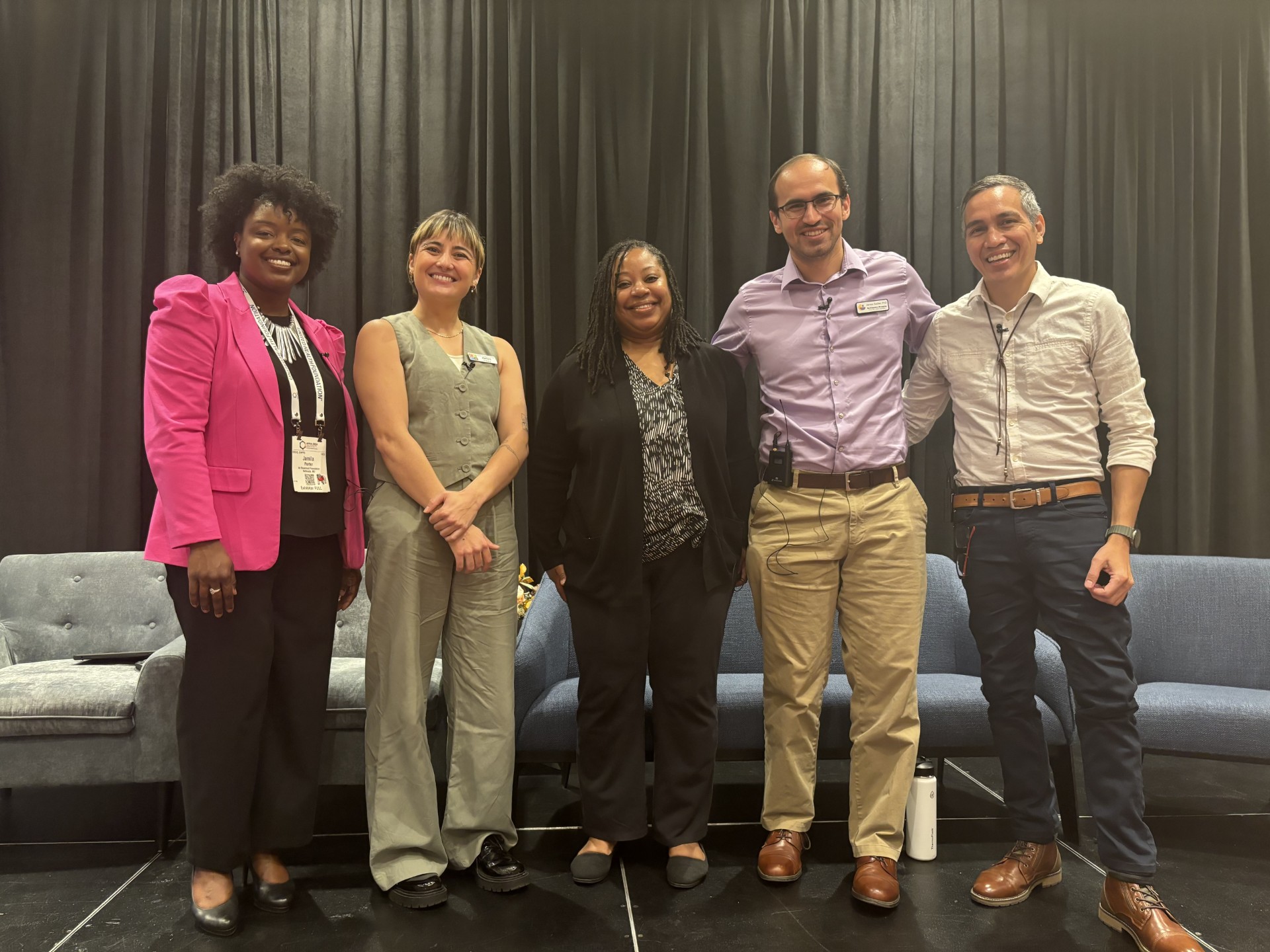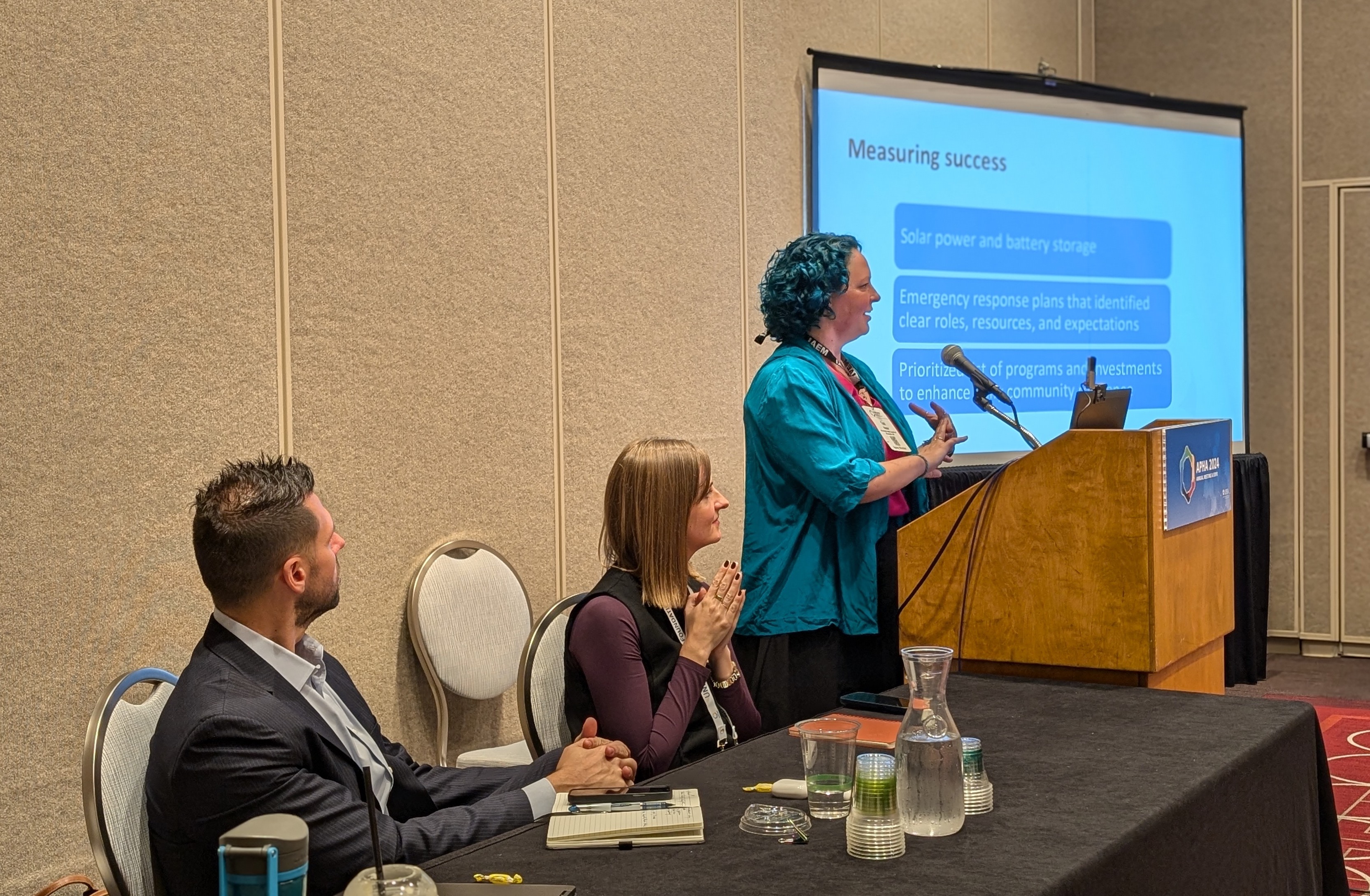That’s a wrap for the American Public Health Association (APHA) 2024 Annual Meeting and Expo, but we’ve just begun reflecting on our incredible conference experience. The jam-packed week in Minneapolis has elevated new perspectives, connections, and ideas to put into practice. We’re feeling inspired and reenergized to take on public health challenges and celebrate our wins. Here’s a recap of our time at APHA 2024.

de Beaumont staff connected with hundreds of attendees while staffing the booth in the expo hall.
It was a pleasure connecting with members of the public health community, especially in conversations at the de Beaumont booth. We enjoyed meeting with professionals from around the world — from long-term collaborators to new acquaintances — and reconnecting with colleagues like our 40 Under 40 in Public Health honorees.
We were thrilled to launch the first Disrupt day of sessions bringing together leaders across disciplines to ask the questions that others won’t, provoke thoughtful discussion, and drive solutions to transform our nation’s health. Hundreds of attendees heard from speakers sharing their insights on empathetic communication, data justice, business partnerships, policy change, and community-centered approaches.

Public health communication needs to be empathetic to help build trust with communities, panelists said at the Disrupt Champion Conversation.
Disrupt kicked off with a Champion Conversation on transforming public health messaging in a polarized era, moderated by de Beaumont science communications advisor Jessica Malaty Rivera. Panelists Lauren Weber of The Washington Post, Olusimbo Ige of the Chicago Department of Public Health, Gillian SteelFisher of the Harvard Opinion Research Program, Alison Rodden of HCN Global, and Megan L. Ranney of the Yale School of Public Health explained how in a time of heightened emotions and widening sociopolitical divisions, public health communication needs to be grounded in empathy and understanding.
The Champion Conversation speakers explored how effective communication is key to meaningful engagement, a sentiment that was echoed in a session on designing measurable social media campaigns. de Beaumont senior digital marketing associate Imani Lewis Glasspiegel led a crash course on how to tie the evaluation of digital and social media efforts to the audience and goals of the campaign. She walked attendees through a comparison of the Stages of Changes model and a typical social media marketing funnel and highlighted resources and tools from the Public Health Communications Collaborative.
Themes of data equity and justice were infused across APHA sessions. Led by Jamila Porter, de Beaumont Chief of Staff and principal investigator for the Modernized Anti-Racist Data Ecosystems (MADE) for Health Justice initiative, representatives from each of the MADE Communities gave presentations on their experiences developing local data ecosystems. dallas haley of the Coalition of Communities of Color (CCC), Tiffany Gary-Webb of the Black Equity Coalition, Dylan Baysa of the Tucson Indian Center, and James Sadler of Baltimore’s Promise shared how their local collaboratives are transforming and redefining data.

Tiffany Gary-Webb (middle) of the Pittsburgh MADE Community said, “We want to create a process that uses participatory data governance to pull community in and shift power to community to ask questions such as, ‘What are the avenues for people to participate in decisions about the use of predictive analytics in public institutions?’ Or, ‘What are practices that empower people to help inform, shape, and in some instances, govern their own data?'”
Attendees learned more about MADE’s concepts in a special session from two MADE Communities, featuring CCC’s principles of community data and the path to prototyping Baltimore City’s Youth Data Hub.
Public health is increasingly leaning into cross-sector partnerships, and collaborations with the business sector are essential. As de Beaumont President and CEO Brian Castrucci told the audience at the Disrupt session on engaging business for public health, “Community health is the new workplace wellness. And as we work together in partnership with our business community, if local health departments have business councils, we will create stronger communities that are thriving and economically strong.”
Catherine Ettman of the Johns Hopkins Bloomberg School of Public Health moderated a panel with Sharon E. Smith of The Estée Lauder Companies, Tracy Watts of Mercer, and Steven Levine of Meteorite that illuminated the value of convening business and public health.

Making the case for good health being good business, Toni Hauser shared learnings from the IMPACT in Public Health Minneapolis team’s work on climate adaptation and mitigation services.
One area that’s prime for collaboration between these communities is reducing the health effects of climate change. de Beaumont senior program officer Katy Evans led a discussion on how the Health Action Alliance (HAA) is supporting the private sector in efforts to address the impacts of climate change. The panel also highlighted the Minneapolis-based Innovative, Multi-sector Partnerships for Community Transformation (IMPACT) in Public Health team, whose project sought to address the impacts of racial inequity and disparate climate impacts in low-income neighborhoods.
In the Disrupt session on policy as medicine, CityHealth Executive Director Katrina Forrest moderated a candid panel among three public health leaders with experience as health commissioners, navigating political turmoil, the COVID-19 pandemic, and the other challenges that come with protecting and promoting community health. Speakers LaQuandra S. Nesbitt (George Washington University School of Medicine and Health Sciences) formerly of Washington, D.C., Patty Hayes, formerly of Public Health Seattle & King County, and Colleen M. Bridger (Colleen Bridger Consulting), formerly of the San Antonio Metro Health District, have all been involved in advancing policy by the nature of their jobs.
“In our role as health officer, health director, health commissioner, we often have the opportunity to…influence legislative policy, which has a huge impact either from a regulatory perspective or something gets codified in our city ordinances,” Nesbitt said.
“When it comes to the health department’s role in policy, you plant the seeds, and that’s through the data and…ideas from talking to the actual policy makers,” Bridger said. “Then you water those seeds by getting the advocates to rally around the decision makers.”
Rounding out Disrupt, BUILD Health Challenge Executive Director Melissa Monbouquette moderated a panel with awardees from the BUILD initiative speaking to the importance of centering community to advance health equity. Andy Wessel of the Douglas County Health Department, Hillery Ross of Access Health/How YOU Birth Doulas, Che Orduna of Heartland Family Service, and Jennifer Barangan of Access Health discussed the role of community voice in their respective collaboratives. Recognizing who holds power is critical, panelists underscored.
“We often do a really good job of making sure to listen to our funders, and we don’t always [have] the same level of intentionality in terms of listening to our community,” Wessel said. “How do we do a better job of being able to listen so that our community doesn’t have to exert so much effort and struggle into just making themselves heard?”




